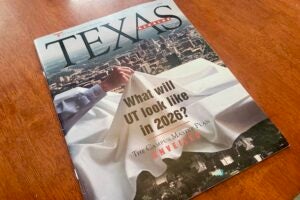As anticipated, President Donald Trump recently used his executive authority to reverse measures implemented as part of the Affordable Care Act that mandate coverage of contraception in most insurance plans, broadening the ability of entities to claim exemption from the requirements based on the religious beliefs of employers providing coverage.
After a long history of public debate about women’s access to contraception, a University of Texas/Texas Tribune Poll conducted just last year found the right to use contraception essentially a settled issue. Now the Trump administration’s high-profile action in the name of religious liberty has introduced conflict into an area where before there had been consensus.
The Trump administration did not give birth to the conflict at the intersection of contraception, religion and health care. Objections by religious groups had already led to modifications during the Obama administration, but the Trump administration’s action does represent a pointed effort to disrupt a clear consensus on the issue. Texas is a good case in point.
The magnitude and breadth of support for the idea that women should have access to contraception remains one of the most one-sided results in the decade of Texas polling we’ve compiled at the Texas Politics Project — and in a state known for containing a wellspring of socially conservative views.
In the November 2015 poll, we asked Texans, “Do you think that women who want to avoid becoming pregnant should have access to birth control?” Eighty-seven percent of Texas voters said yes; only 5 percent said no. Even looked at through the lenses of political parties and ideology, support was nearly universal: 84 percent of Republicans supported access, along with (less surprisingly) 92 percent of Democrats.
This widespread acceptance of a woman’s right to use contraception notwithstanding, expect lots of public support for the Trump administration’s policy rollback from Republicans and conservatives in Texas. Why? Because the change introduces competing priorities among conservatives that qualifies otherwise overwhelming support.
The announced policy change is activating attitudes on religious persecution through the policy angle of so-called conscience exemptions based on religious beliefs, and, to a lesser extent, attitudes toward the Affordable Care Act and former President Barack Obama.
The evaluations of Trump’s policy change that will ultimately emerge will in turn reflect the partisan divides we’ve come to expect on social issues, even if they aren’t evident in responses to the issue of contraception in isolation.
Placing access to contraception in the context of religious discrimination predictably moves conservative attitudes in a direction likely to produce support for Trump and his policy change — or, at least, to stifle objections. In a set of questions in the November 2016 University of Texas/Texas Tribune Poll that probed Texans’ perceptions of which social groups experience discrimination, we found that a plurality of Republicans, 40 percent, cited Christians as the group facing, as the question put it, “the MOST discrimination in the United States today.”
By comparison, only 2 percent of Republicans chose women. Interestingly, only 4 percent of Democrats chose women, the same as chose Christians.
To the extent that one might argue that denying women coverage for contraception constitutes gender discrimination, in June 2017 polling, Republican identifiers were divided on the question of permitting discrimination based on a sincerely held religious belief — with 45 percent saying that this was OK and 34 percent saying that it was not.
But while opinions among Republicans were divided, a majority who had an opinion agreed that “a sincerely held religious belief is a legitimate reason to exempt someone from laws designed to prevent discrimination.”
So while there really is no public debate to be had about whether women should have access to contraceptives, by promoting the rollback of part of an unpopular law in the context of perceptions of religious discrimination, the Trump administration hit a political sweet spot with its base here in Texas.
In doing so, they illustrated how the political incentives to activate underlying divisions in public attitudes — from a White House in which no impulse to activate divisions goes unheeded — can work to counter even the broadest consensus.
Jim Henson is the director of the Texas Politics Project at The University of Texas at Austin. Joshua Blank is manager of polling and research of the Texas Politics Project at The University of Texas at Austin.
A version of this op-ed appeared in USA Today, Waco Tribune Herald, and the Corpus Christi Caller Times.
To view more op-eds from Texas Perspectives, click here.
Like us on Facebook.




